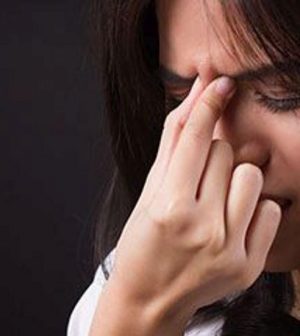- The Best Time of Day to Drink Bone Broth to Maximize Health Benefits
- 8 Ways to Increase Dopamine Naturally
- 7 Best Breads for Maintaining Stable Blood Sugar
- Gelatin vs. Collagen: Which is Best for Skin, Nails, and Joints?
- The Long-Term Effects of Daily Turmeric Supplements on Liver Health
- Could Your Grocery Store Meat Be Causing Recurring UTIs?
- Are You Making This Expensive Thermostat Error This Winter?
- Recognizing the Signs of Hypothyroidism
- 10 Strategies to Overcome Insomnia
- Could Artificial Sweeteners Be Aging the Brain Faster?
PTSD Common After Sexual Assault, But Eases for Most

Most sexual assault survivors have post-traumatic stress disorder (PTSD) immediately after the attack, but it tends to lessen over the following months, a new study finds.
“One of the main takeaways is that the majority of recovery from post-traumatic stress happens in the first three months,” said study lead author Emily Dworkin, an assistant professor of psychiatry and behavioral sciences at the University of Washington School of Medicine, in Seattle.
“We hope this will give survivors and clinicians a sense of what to expect and convey some hope,” she added in a school news release.
PTSD can involve reliving a traumatic event in nightmares, intrusive thoughts or flashbacks. Other symptoms include avoiding being reminded of the event, more negative emotions and fewer positive emotions, self-blame and feeling on edge, the researchers explained.
For the new study, the investigators conducted a review of data from 22 studies that followed more than 2,100 sexual assault survivors over time, beginning soon after the attack.
The researchers found that 81% of the survivors had significant PTSD symptoms one week after the assault. One month afterward — the first point at which PTSD can be diagnosed — 75% of sexual assault survivors had the disorder. That fell to 54% after three months and 41% after one year, the findings showed.
The results were published July 19 in the journal Trauma, Violence & Abuse. The findings support previous research showing that PTSD is common and severe in sexual assault survivors. They also provide a timeline for recovery.
A number of proven interventions — including prolonged exposure therapy and cognitive processing therapy — can help people recover from sexual assault and other traumas, according to the researchers.
If someone has PTSD symptoms that interfere with their functioning, it’s important for them to seek help, no matter how much time has passed since the traumatic event, Dworkin said.
She and a colleague are testing methods to speed the recovery process for recent sexual assault survivors, including a smartphone app that teaches evidence-based coping skills.
More information
The U.S. National Institute of Mental Health has more on PTSD.
SOURCE: University of Washington School of Medicine, news release, July 20, 2021
Source: HealthDay
Copyright © 2026 HealthDay. All rights reserved.










